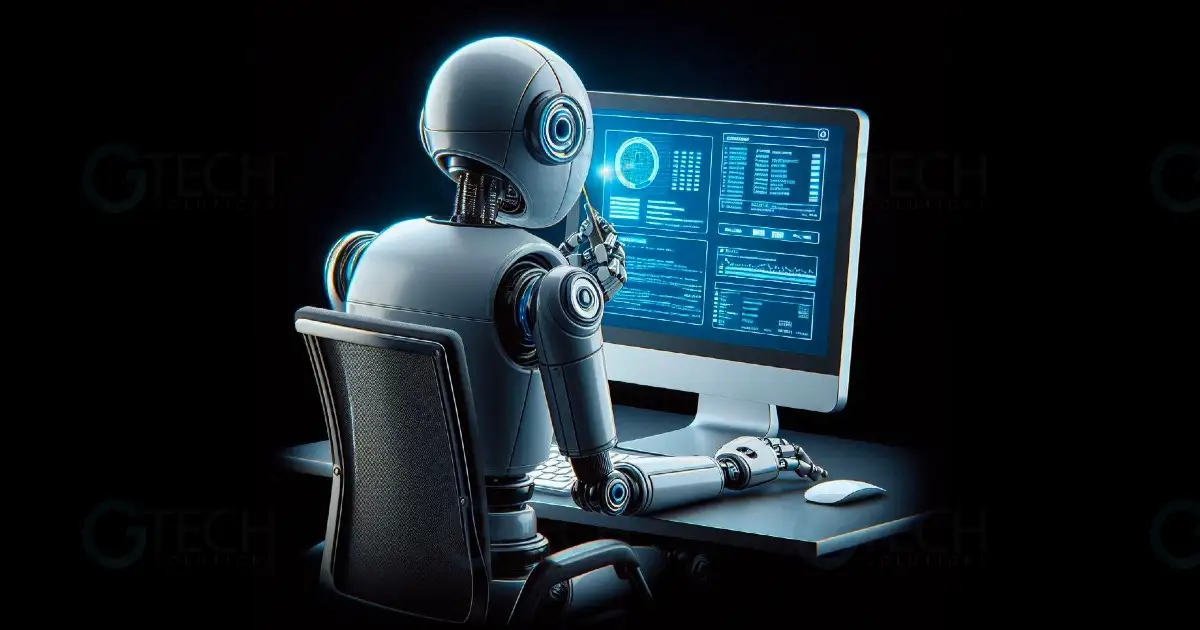OpenAI’s Next Self-Testing AI Agent: A Self-Testing Software Engineer That Does What Humans Won’t
In recent years, artificial intelligence has evolved at an astonishing pace, shaping the way we work and interact with technology. As businesses and developers increasingly rely on AI tools to enhance productivity, OpenAI is pushing the boundaries even further with a groundbreaking development: a self-testing software engineer agent. This agent can automate many aspects of the software development lifecycle, providing a glimpse into the future of intelligent agents and autonomous systems. It handles tasks that traditionally required human intervention and takes on the responsibility of testing, verifying, and improving software without direct human input. This article will delve into OpenAI’s next AI agent, exploring its potential, applications, concerns, and the role of quality assurance in this new era of autonomous systems.
The Rise of Agentic Systems in Software Development
As software development continues to evolve, developers have begun to explore new ways of improving productivity. One of the most significant shifts has been the rise of agentic systems—autonomous systems capable of performing tasks with little to no human oversight. OpenAI’s next AI agent exemplifies this trend, acting as a self-testing software engineer. It can carry out tasks like bug identification, code generation, and even software testing, all autonomously. The potential to automate these aspects of development reduces the dependency on human labor for repetitive tasks, allowing developers to focus on more creative and strategic objectives.
This transition is made possible by the development of large language models and generative models, which are trained to understand and manipulate code. These models, powered by AI, can analyse and execute tasks in ways that were once unimaginable for traditional software. As the demand for automated testing and software development grows, this AI agent serves as a powerful tool to streamline workflows and enhance efficiency.
How the Self-Testing AI Agent Works
At its core, OpenAI’s self-testing software engineer agent operates using a combination of machine learning models, language processing capabilities, and task automation. The agent can interpret a variety of prompts related to software development, enabling it to work within the context of complex, multi-step tasks. For example, it can be prompted to generate code, test the code, identify bugs, and make improvements—all without requiring intervention from a human developer.
The AI’s ability to handle failure is also a key feature. As a self-testing agent, it can simulate errors, assess them, and self-correct using predefined failure handling mechanisms. If the agent encounters a task it cannot solve, it either revises its approach or escalates the task to human developers for review. This self-correction mechanism is critical in ensuring that the agent’s performance meets industry standards and remains reliable for commercial versions.
Additionally, OpenAI’s agent is capable of executing a range of applications beyond testing. It can be used for content creation, customer support automation, and research assistance, further expanding its utility in various fields. Its capacity to handle large amounts of data and perform complex decision-making processes makes it an essential tool for enterprises looking to scale their operations.

The Role of Automation in Software Testing and Quality Assurance
In the realm of software testing, the integration of AI agents is a game-changer. Automated testing has long been an essential component of quality assurance (QA), but with the advent of AI-driven systems, the capabilities of testing have reached new heights. These self-testing AI agents not only identify bugs but also predict potential issues before they arise, enabling proactive solutions.
OpenAI’s agent is an ideal candidate for automating tasks within software testing, such as regression testing, performance testing, and user interface testing. By using sophisticated models, the AI can simulate user interactions and assess how the software performs under different conditions. This level of thoroughness can help identify areas that might otherwise be overlooked, increasing the overall reliability of the software.
From a QA perspective, this self-testing agent represents a shift toward more efficient testing methodologies. Traditional manual testing is time-consuming and error-prone, while AI-powered automation ensures faster and more accurate results. This not only enhances productivity but also significantly reduces the risk of human errors that can occur during the testing process.
Ethical Concerns and Unpredictable Behavior
While OpenAI’s self-testing software engineer is a promising development, it also raises several ethical concerns. As with any autonomous system, the potential for unpredictable behavior is a significant issue. AI agents, although highly capable, are not infallible. They operate based on the data they are trained on, and this data can sometimes lead to biased or incorrect decisions.
For example, the agent might make errors in its decision-making process, leading to incorrect code execution or failure to identify critical bugs. Furthermore, there is the risk of AI being used for malicious purposes, such as automating cyberattacks or developing harmful software. These concerns highlight the need for human-in-the-loop review and oversight to ensure that the AI operates within ethical boundaries.
Another major concern is the potential for AI to replace human jobs, particularly in fields like software development and quality assurance. While AI agents can handle many tasks, human creativity, intuition, and judgment remain irreplaceable. Striking a balance between automation and human input will be crucial to ensuring that the benefits of AI are maximised while minimising its risks.
Applications of the Self-Testing Agent in Different Industries
OpenAI’s self-testing AI agent has a wide range of applications beyond software development. In content creation, the agent can be used to generate high-quality articles, blog posts, and social media content, reducing the workload for marketers and writers. Its ability to understand context and produce human-like language makes it an ideal tool for generating content at scale.
In customer support, AI agents can handle routine inquiries, troubleshoot common issues, and escalate more complex cases to human representatives. This level of automation not only improves efficiency but also enhances the customer experience by providing quicker resolutions. For enterprises, AI-driven support systems can also collect valuable data on customer interactions, which can be analysed to improve services and offerings.
The potential for AI agents in enterprise automation is also vast. These agents can be employed to handle tasks such as lead generation, research assistance, and market analysis. With their ability to process large volumes of data and perform complex analyses, AI agents can uncover insights that would take humans much longer to identify, providing businesses with a competitive edge in the market.

The Future of AI in Software Development and Testing
Looking ahead, the role of AI in software development and testing is poised to grow even more prominent. With advancements in generative models, AI agents will be able to handle increasingly complex tasks with minimal human input. These systems will continue to evolve, becoming more sophisticated and capable of tackling a wider array of challenges.
In the future, AI agents can write entire programs autonomously, integrating seamlessly with human developers to create software more efficiently. The development of self-correcting systems will also ensure that these agents can adapt to changing requirements and new technologies without requiring constant oversight.
Moreover, the growing use of AI in software development will lead to better integration with existing tools and platforms. From version control systems to bug-tracking tools, AI agents will work alongside current technologies to enhance their capabilities. This will open up new possibilities for improving code quality, reducing time-to-market, and minimising the risk of errors.
Concerns About AI’s Role in Software Testing and Development
While AI offers tremendous benefits, it’s important to address the concerns surrounding its use in software testing and development. As AI agents become more powerful, the potential for errors or failures becomes a significant risk. These agents must be designed with failure-handling mechanisms in place to ensure that mistakes are caught early and corrected efficiently.
Moreover, AI agents should not be relied upon exclusively for decision-making. While they can assist in generating code and automating tests, human input is still necessary to provide oversight, interpret results, and make decisions based on complex ethical considerations. The integration of human-in-the-loop review processes is essential to ensure that AI agents remain aligned with industry standards and ethical practices.
Security also remains a critical concern. AI agents, like any software, are susceptible to vulnerabilities. Malicious actors could exploit weaknesses in these systems, leading to security breaches or the development of harmful software. As such, robust security measures must be in place to safeguard against cyberattacks and ensure the integrity of AI-driven systems.
The Importance of Quality Assurance and Testing in the Age of AI
As AI continues to shape the future of software development, the importance of quality assurance and testing cannot be overstated. At G-Tech Solutions, we specialise in providing top-notch quality assurance and testing services to ensure that software products meet the highest standards of reliability and performance. Our team leverages the latest testing tools and techniques to identify bugs, optimise performance, and ensure that software is secure and user-friendly.
In an era where AI is increasingly integrated into software development, it is essential to maintain a robust QA process. With AI agents taking on more responsibilities, it is still critical to conduct human oversight and review to ensure that automated systems are performing as expected. Our expertise in automated testing, coupled with our deep understanding of AI technologies, allows us to provide comprehensive testing services that cover every aspect of your software.
If you are looking to integrate AI into your development process or need assistance with testing your software, G-Tech Solutions is here to help. Contact us today to learn more about our quality assurance and testing services and how we can assist you in building the next generation of software solutions.



